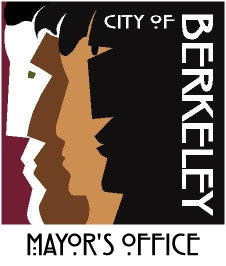Berkeley City Council Places $650 Million Affordable Housing & Infrastructure Bond on November Ballot
BERKELEY CITY COUNCIL PLACES $650 MILLION AFFORDABLE HOUSING & INFRASTRUCTURE BOND ON NOVEMBER BALLOT
The ballot measure would fund affordable housing, street and sidewalk repairs and safety, the undergrounding of utilities, and will enhance parks and the waterfront.
BERKELEY–The Berkeley City Council has unanimously voted to place a $650 million bond measure to finance the creation of affordable housing, climate change resilience, street and sidewalk repair, traffic safety, and other improvements to public infrastructure. If passed, would be the largest bond measure ever approved in the City of Berkeley, and would address aging infrastructure and the critical shortage of affordable housing.
“This is an urbanist measure to bring our aging infrastructure into the 21st century,” said Berkeley Mayor Jesse Arreguín. “These resources will enable Berkeley to fix almost every street in need of repair. They’ll support the development of affordable housing to help us combat homelessness and make sure Berkeley continues to be accessible to all. This money also enables us to underground utilities in the Berkeley Hills to reduce wildfire risks and create multiple protected evacuation routes. It will also enable the city to revitalize its parks and waterfront, and make pedestrian and bike lane improvements. Berkeley residents have consistently ranked housing, climate resiliency, and infrastructure as major priorities. We’re listening, and this bond is the City Council’s response.”
If approved by Berkeley voters, the $650 million bond will be allocated as follows:
$200 million: Affordable housing improvements, to build and preserve affordable housing
$300 million: Street, sidewalk and traffic safety infrastructure improvements
$231 million for street paving and reconstruction to reach a good pavement condition
$69 million for sidewalks, paths, and traffic safety improvements including bike and pedestrian facilities and streetscape improvements.
$150 million: Safety, climate resiliency and other public infrastructure improvements
$50 million for undergrounding utilities on evacuation routes
$100 million for all other infrastructure improvements, including but not limited to: reducing risks and impacts of climate change such as stormwater improvements and addressing sea level rise; improving City parks, pools, camps and recreation facilities, including the Waterfront and Municipal Pier; revitalizing the historic Civic Center; and improvements to public buildings.
Over the past five years, thanks to previous voter approved bonds and taxes, the City has successfully leveraged millions of additional dollars to rehabilitate parks, infrastructure and facilities citywide. Some key projects recently completed include the Frances Albrier Community Center, Live Oak Community Center, Strawberry Creek Park, North Berkeley Senior Center, the Rose Garden, in addition to streets, sidewalks, storm drains, and other infrastructure citywide.
Additionally, thanks to the Measure O affordable housing bond, the City has subsidized the creation of roughly 800 permanent deed restricted units in newly built housing projects, or in existing buildings preserved and rehabilitated.
Despite this significant progress, the city faces a severe shortage of affordable housing and a continued homelessness crisis. The City has also estimated that the unfunded backlog for infrastructure improvements could total $1 Billion dollars unless addressed. The growing threat of climate change also requires that we make our infrastructure more resilient to address threats from sea level rise and wildfires.
In November 2018, Berkeley voters approved an advisory measure to develop “Vision 2050”, a 30-year plan to identify and guide implementation of climate-smart, technologically-advanced, integrated and efficient infrastructure to support a safe, vibrant and resilient future for Berkeley. This bond measure will help advance the goals of Vision 2050, and will be guided by the Vision 2050 Program Plan, a comprehensive plan to build, upgrade, and repair Berkeley’s infrastructure and facilities to be more sustainable, safe, and resilient and to meet the needs of future generations, including addressing climate and environmental challenges.
Voters can begin voting on October 10th when ballots are mailed. Election Day is on November 8th.
